Into--and Out of--Jewish Life: 5 Personal Stories
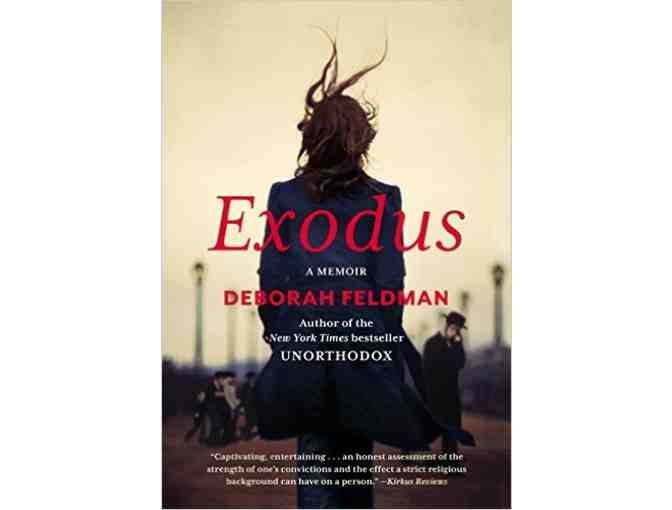
Item Number: 187
Time Left: CLOSED
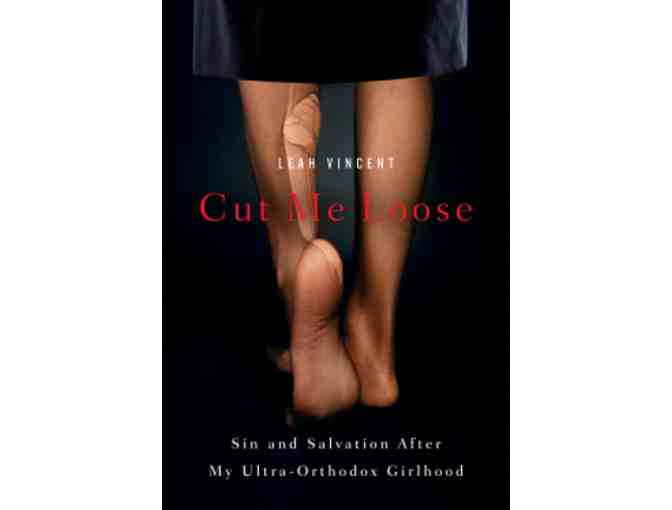
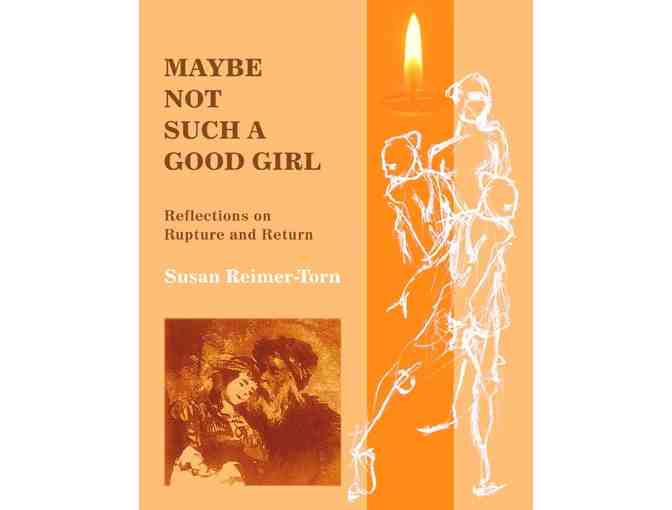
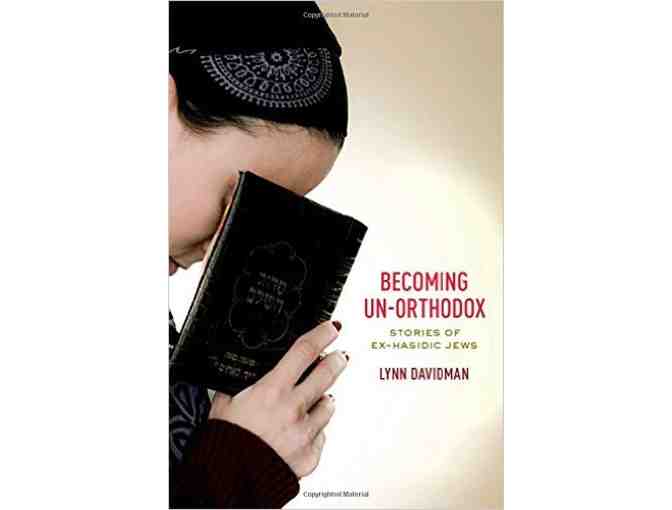
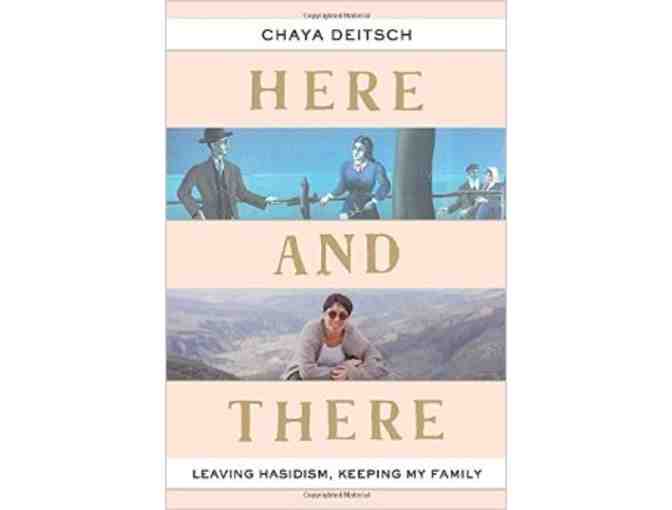
Description
Maybe Not Such a Good Girl: Reflections on Rupture and Return, by Susan Reimer-Torn.
Coming of age in an Orthodox Jewish family in New York, Susan Reimer-Torn yearned for independence and the opportunity to express her love of dancing and beauty. She fled her home and community for France, certain that the rupture with her family and faith would never heal. When an unexpected event drew her back to New York after more than two decades, a mystifying attraction to her neighborhood synagogue blossoms into a multi-textured, spiritual journey and fresh meaning in the complexities of Jewish heritage.
Cut Me Loose: Sin and Salvation After Mu Ultra-Orthodox Girlhood, by Leah Vincent.
In the vein of Prozac Nation and Girl, Interrupted, this brutally honest memoir tells the story of one woman’s struggle to define herself as an individual. Leah Vincent was born into the Yeshivish community, an ultra-Orthodox Jewish sect that shuns the modern world. When, at sixteen, Leah was caught exchanging letters with a boy—breaking a religious ban on contact between the sexes—her family cut all ties. Sent to live on her own in New York City, adrift and unprepared for the freedoms of secular life, Leah’s desperate loneliness coupled with her stubborn loyalty to the dogma of her past pulled her into a vicious cycle of promiscuity and self-harm. It took a shocking state of despair to empower her to transform a life of tragedy into a tale of unexpected triumph, one that illuminates both the oppressive world of religious fundamentalism and the broader issues facing young women from all backgrounds as they grapple with sexuality and identity.
Exodus: A Memoir, by Deborah Feldman.
The author of the explosive New York Times-bestselling memoir Unorthodox chronicles her continuing journey as a single mother, an independent woman, and a religious refugee.
In 2009, at the age of twenty-three, Deborah Feldman walked away from the rampant oppression, abuse, and isolation of her Satmar upbringing in Williamsburg, Brooklyn to forge a better life for herself and her young son. Since leaving, Feldman has navigated remarkable experiences: raising her son in the “real” world, finding solace and solitude in a writing career, and searching for love. Culminating in an unforgettable trip across Europe to retrace her grandmother’s life during the Holocaust, Exodus is a deeply moving exploration of the mysterious bonds that tie us to family and religion, the bonds we must sometimes break to find our true selves.
Here and There: Leaving Hasidism, Keeping My Family, by Chaya Deitsch.
A heartfelt and inspiring personal account of a woman raised as a Lubavitcher Hasid who leaves that world without leaving the family that remains within it.
Even as a child, Chaya Deitsch felt that she didn’t belong in the Hasidic world into which she’d been born. She spent her teenage years outwardly conforming to but secretly rebelling against the rules that tell you what and when to eat, how to dress, whom you can befriend, and what you must believe. Loving her parents, grandparents, and extended family, Chaya struggled to fit in but instead felt angry, stifled, and frustrated. Upon receiving permission from her bewildered but supportive parents to attend Barnard College, she discovered a wider world in which she could establish an independent identity and fulfill her dream of an unconfined life that would be filled with the secular knowledge and culture that were largely foreign to her friends and relatives in Crown Heights, Brooklyn. As she gradually shed the physical and spiritual trappings of Hasidic life, Chaya found herself torn between her desire to be honest with her parents about who she now was and her need to maintain a loving relationship with the family that she still very much wanted to be part of.
Eventually, Chaya and her parents came to an understanding that was based on unqualified love and a hard-won but fragile form of acceptance. With honesty, sensitivity, and intelligence, Chaya Deitsch movingly shows us that lives lived differently do not have to be lives lived apart.
Becoming Un-Orthodox: Stories of Ex-Hasidic Jews, by Lynn Davidman.
Leaving a religion is not merely a matter of losing or rejecting faith. For many, it involves dramatic changes of everyday routines and personal habits.
Davidman bases her analysis on in-depth conversations with forty ex-Hasidic individuals. From these conversations emerge accounts of the great fear, angst, and sense of danger that come of leaving a highly bounded enclave community. Many of those interviewed spoke of feeling marginal in their own communities; of strain in their homes due to death, divorce, or their parents' profound religious differences; experienced sexual, physical, or verbal abuse; or expressed an acute awareness of gender inequality, the dissimilar lives of their secular relatives, and forbidden television shows, movies, websites, and books.
Becoming Un-Orthodox draws much-needed attention to the vital role of the body and bodily behavior in religious practices. It is through physical rituals and routines that the members of a religion, particularly a highly conservative one, constantly create, perform, and reinforce the culture of the religion. Because of the many observances and daily rituals required by their faith, Hasidic defectors are an exemplary case study for exploring the centrality of the body in shaping, maintaining, and shedding religions.
This book provides both a moving narrative of the struggles of Hasidic defectors and a compelling call for greater collective understanding of the complex significance of the body in society.
Special Instructions
A $7.50 charge will be added for shipping and handling to any USA address. Inquire about shipping outside the USA.